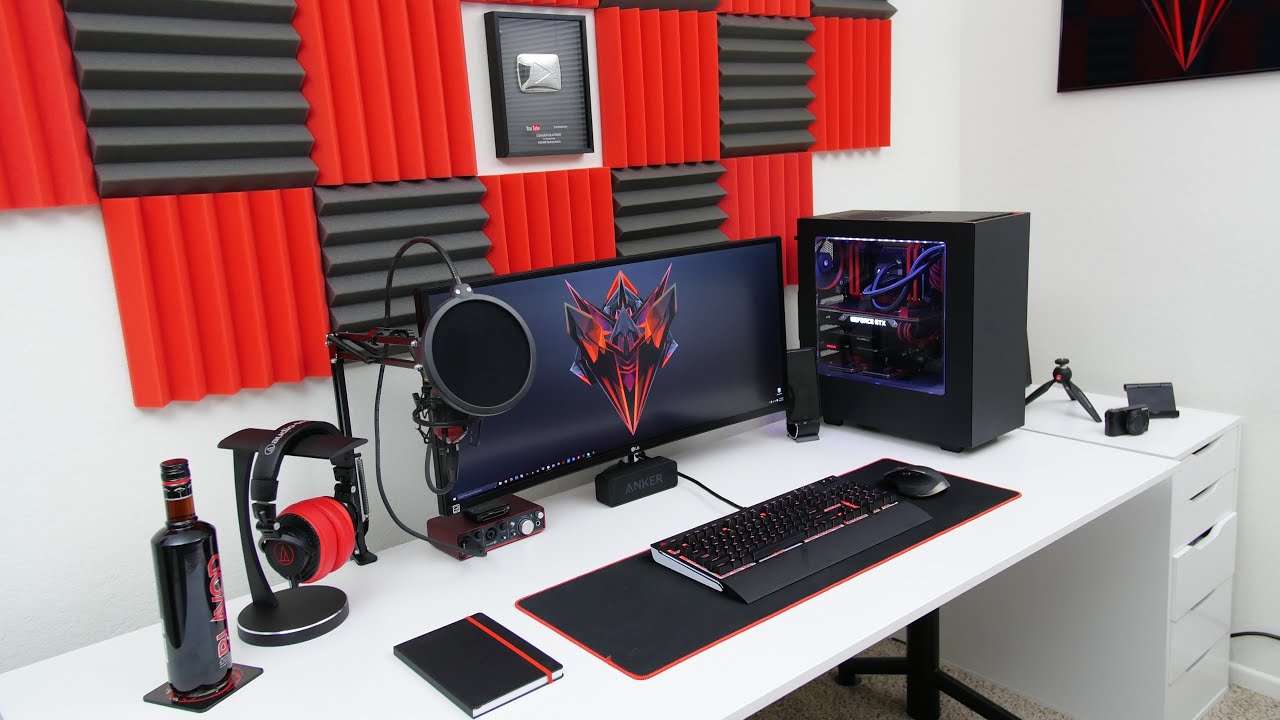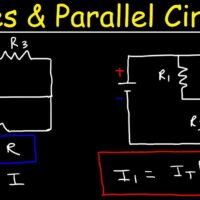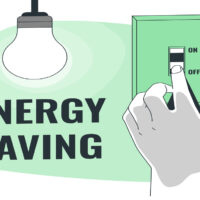To get better at cable management, organize cables with Velcro ties and use cable management trays. Label each cable clearly.
Effective cable management enhances workspace aesthetics and reduces hazards. Start by assessing your current setup. Identify cables that can be grouped together. Use Velcro ties to bundle cables neatly. Cable management trays help keep everything off the floor. Label each cable to easily identify them later.
Regularly review and adjust your setup to maintain organization. Good cable management not only makes your workspace look cleaner but also extends the lifespan of your equipment. With a little effort, you can create a tidy and efficient environment. Investing in quality cable management tools ensures a clutter-free and safe workspace.

Credit: www.youtube.com
The Importance Of Tidy Cables
Tidy cables are crucial for an organized and efficient workspace. Messy cables can cause many issues. These issues range from aesthetic problems to technical malfunctions.
The Aesthetic Appeal Of Organized Spaces
Neat cables make any room look better. They create a sense of order and calm. Cluttered cables can make a space look messy. A clean space feels more welcoming and professional.
Use cable ties, clips, and sleeves to manage your cables. These tools help keep cables in place and out of sight. A visually appealing workspace can boost your productivity. You feel more motivated in a tidy environment.
Performance And Longevity Of Electronic Devices
Tidy cables improve the performance of your devices. Tangled cables can cause interference and signal loss. This affects the efficiency of your electronics.
Organized cables also help in identifying issues quickly. You can spot loose or damaged cables easily. This helps in maintaining your devices better. Good maintenance extends the life of your electronics.
| Benefits of Tidy Cables | Details |
|---|---|
| Improved Aesthetics | Makes space look clean and organized |
| Better Performance | Reduces signal interference and loss |
| Easy Maintenance | Helps spot and fix issues quickly |
| Extended Longevity | Increases the lifespan of electronic devices |
Assessing Your Current Cable Situation
Before you improve your cable management, assess your current situation. This step helps you identify problem areas and prioritize devices and connections.
Identifying Problem Areas
Start by looking at your workspace. Identify areas where cables are tangled or cluttered. Check behind your desk, under your TV stand, and around your computer. Note all the problem spots where cables are messy.
Use the table below to organize your findings:
| Problem Area | Description |
|---|---|
| Behind Desk | Cables tangled and hard to reach |
| Under TV Stand | Power cords and HDMI cables mixed |
| Around Computer | USB cables and chargers everywhere |
Prioritizing Devices And Connections
Next, list all your devices and their connections. This helps you prioritize which cables need immediate attention.
Use an ordered list to rank your devices:
- Computer
- Monitor
- Printer
- Router
- Charging Station
Focus on the most important devices first. Ensure they have the best cable management. Group similar cables together, like all power cords or all network cables.
Use bullet points to list types of cables:
- Power Cords
- HDMI Cables
- USB Cables
- Network Cables
By assessing your current cable situation, you create a clear plan. This makes your cable management task easier and more effective.
Essential Tools For Cable Management
Managing cables can be a daunting task. But the right tools can make it simple. Essential tools for cable management help you keep your workspace tidy. They also ensure your cables last longer. Let’s explore some of these tools in detail.
Cable Ties And Clips
Cable ties are small but powerful. They hold your cables together tightly. You can use them to bundle multiple cables. This prevents tangling and keeps them organized.
Cable clips are perfect for guiding cables along surfaces. They stick to desks, walls, or any flat surface. You can easily clip your cables into place. This keeps them from falling or getting in the way.
| Tool | Use |
|---|---|
| Cable Ties | Bundling cables together |
| Cable Clips | Securing cables to surfaces |
Cable Sleeves And Channels
Cable sleeves offer a neat solution. They wrap around multiple cables. This gives a clean and professional look. Cable sleeves also protect cables from damage.
Cable channels are another great option. They guide cables along walls or floors. You can hide cables inside these channels. This keeps them out of sight and organized.
- Cable Sleeves: Protect and organize multiple cables
- Cable Channels: Hide and guide cables along surfaces
Credit: www.reddit.com
Planning Your Cable Management Layout
Effective cable management begins with a clear plan. A well-thought-out layout helps maintain order and improves functionality. It also makes your workspace look neat and tidy.
Creating A Cable Routing Plan
Start by assessing your workspace. Identify where each device will sit. Note the length of cables required. Use a diagram to map out cable routes. This helps you visualize the setup.
- Identify power sources and outlets.
- Mark the location of each device.
- Measure the distance between devices and power sources.
- Plan the shortest and cleanest cable routes.
Group similar cables together. Use cable ties or clips for bundling. Label each cable for easy identification. This makes future adjustments simpler.
| Device | Location | Cable Length | Route |
|---|---|---|---|
| Monitor | Desk | 3 feet | Direct to PC |
| Keyboard | Desk | 2 feet | Under desk to PC |
| Router | Shelf | 5 feet | Along wall to outlet |
Avoiding Common Cable Management Mistakes
Avoid overcrowding power strips. This can cause overheating and pose a fire risk. Use multiple strips if needed. Keep cables away from heat sources.
Do not stretch cables too tight. Leave some slack to prevent wear and tear. This extends the life of your cables.
Avoid using adhesive materials that can damage surfaces. Velcro strips are a better choice. They are easy to remove and reposition.
- Do not mix data and power cables.
- Avoid sharp bends and twists in cables.
- Keep cables organized and labeled.
By following these tips, you can achieve a neat and efficient cable management system.
Step-by-step Cable Organization
Organizing cables can be challenging. A step-by-step approach simplifies the process. Follow these steps for tidy and manageable cables.
Disconnecting And Sorting Cables
First, disconnect all cables. Ensure devices are powered off before unplugging.
Next, sort cables by type. Group HDMI, USB, and power cords separately.
Label each cable. Use tags or tape for easy identification.
Create a table to list your cables:
| Type | Purpose |
|---|---|
| HDMI | Monitor |
| USB | Keyboard |
| Power | Laptop |
Securing And Bundling For Neatness
Use cable ties to bundle cables. Group similar cables together.
Velcro straps are reusable. They are great for frequent changes.
Place cable clips on your desk. They keep cables from tangling.
Use a cable management box. It hides power strips and excess cables.
Follow these steps for a clean setup:
- Disconnect and sort cables.
- Label each cable.
- Bundle cables with ties or straps.
- Use cable clips and boxes for neatness.
These steps will make your space look tidy. Your cables will be easy to manage.
Maintaining Your Cables Post-organization
Once you’ve organized your cables, maintaining them is key. Proper maintenance ensures longevity and ease of use. Here are some tips to keep your cables neat and functional.
Routine Checks And Adjustments
Regular checks can prevent cable damage. Inspect your cables for wear or fraying. Replace damaged cables to avoid issues.
- Look for exposed wires.
- Check connectors for any damage.
- Ensure cables are not tangled.
Make small adjustments as needed. This keeps your setup clean and functional.
| Task | Frequency |
|---|---|
| Inspect for damage | Monthly |
| Untangle cables | Weekly |
| Check connectors | Monthly |
Upgrading And Reorganizing As Needed
Technology changes over time. Upgrade your cables to match new devices.
- Identify outdated cables.
- Replace them with new, compatible ones.
- Reorganize to fit new cables.
Keeping your setup updated ensures efficiency.
- Use cable ties for better organization.
- Label cables for easy identification.
- Store extra cables properly to avoid clutter.
Regular upgrades keep your workspace modern and tidy.
Advanced Cable Management Techniques
Advanced cable management techniques can transform your workspace. This guide will help you achieve a cleaner, more efficient setup. Let’s dive into custom solutions and innovative products to enhance your cable management skills.
Custom Solutions For Complex Setups
For complex setups, custom solutions are often the best. Here are some tips:
- Label Your Cables: Use color-coded labels to identify cables quickly.
- Cable Sleeves: Use sleeves to bundle multiple cables together.
- Custom Lengths: Cut cables to the exact length needed to avoid excess.
Here is a table comparing custom cable solutions:
| Solution | Benefit | Best For |
|---|---|---|
| Labeling | Quick identification | All setups |
| Cable Sleeves | Neat bundling | Complex setups |
| Custom Lengths | Reduces clutter | Specific arrangements |
Innovative Products On The Market
Several innovative products can improve your cable management:
- Magnetic Cable Holders: These hold cables in place using magnets.
- Under-Desk Cable Trays: These trays hide cables under your desk.
- Velcro Straps: Use these to tie cables together neatly.
Here is a code snippet to create a simple cable label:
Using the right products can make cable management easier and more effective. Invest in these tools to improve your workspace.
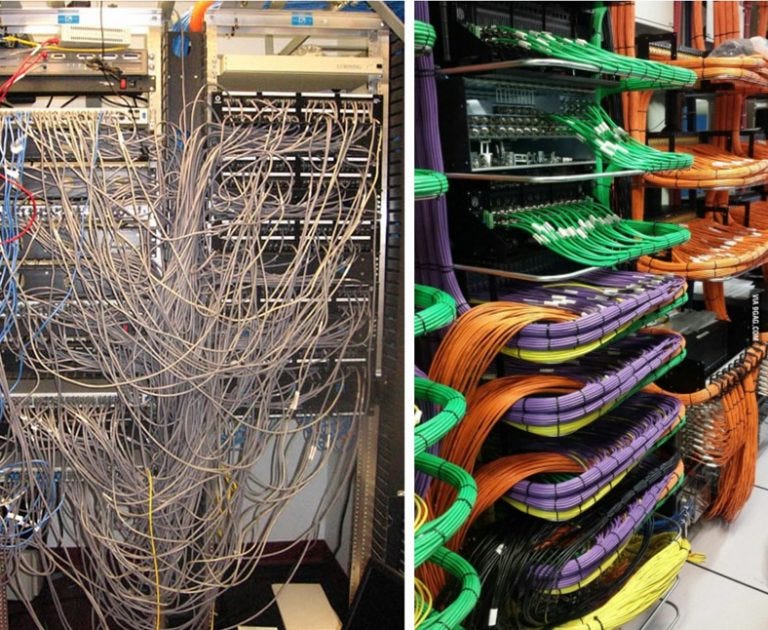
Credit: medium.com
Showcasing Your Cable Management Success
Successfully managing cables can turn a cluttered space into a neat one. Showcasing your cable management success can inspire others. It also helps you feel accomplished.
Before-and-after Comparisons
Documenting your progress is crucial. Take photos before you start. Capture the chaotic mess. Then, take photos after you finish. Show the neat and organized setup.
Before-and-after comparisons tell a story. They highlight your hard work. They also motivate others to improve. Use these comparisons to showcase your skills.
| Before | After |
|---|---|
 |
 |
Sharing Tips With The Community
Sharing your tips helps others. Join online forums or social media groups. Post your before-and-after photos. Explain the steps you took.
Use simple language. Share practical tips. For example:
- Label each cable.
- Use cable ties.
- Hide cables behind furniture.
- Invest in a cable management box.
Engage with the community. Answer questions. Share resources. This builds your credibility. It also helps others improve their spaces.
Frequently Asked Questions
How To Do The Best Cable Management?
Organize cables using Velcro ties or cable clips. Label each cable for easy identification. Route cables along walls or furniture. Use cable management sleeves or boxes to hide excess. Regularly check and adjust for neatness.
Is It Ok To Have Bad Cable Management?
No, bad cable management can cause safety hazards, reduce airflow, and make troubleshooting difficult. Proper organization is essential.
Does Cable Management Improve Performance?
Yes, cable management can improve performance. Organized cables enhance airflow, reducing overheating and maintaining system stability.
How To Manage Cables Too Long?
Use cable ties or Velcro straps to bundle excess length. Store coiled cables in cable organizers or hooks.
Conclusion
Mastering cable management enhances both aesthetics and functionality. Implement these tips for a clutter-free, efficient workspace. Regularly assess and update your setup to maintain order. Organized cables not only look great but also improve safety and performance. Start today and enjoy a neat, streamlined environment.

